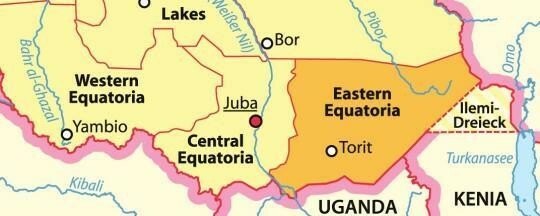The Greater Kapoeta region saw political and community leaders come together for a peace dialogue aimed at resolving various issues and promoting peaceful coexistence.
After two days of discussions, over 400 leaders from north, south, east of Kapoeta and Budi counties in South Sudan’s Eastern Equatoria State reached several resolutions.
These resolutions include holding individuals accountable for crimes, fostering peaceful coexistence, preventing the formation of alliances against other communities, and implementing targeted disarmament. Additionally, agreements were made to facilitate cattle migration through consultations to prevent future conflicts.
The dialogue, organized by the state ministry of peacebuilding and supported by the United Nations Mission in South Sudan, saw the participation of stakeholders at various levels, including state and national MPs, civil society members, youth, women, and both political and traditional leaders.
During the forum, Marko Lokidor Lochapio, the Minister of Peacebuilding for Eastern Equatoria State and a member of SPLM-IO, emphasized the importance of trust-building programs among communities through dialogue and social cohesion.
He stated, “Political and community leaders involved in propagating hate, instigating violence, and mobilizing communities to break the law, including protecting criminals, are liable for persecution.”
Lokidor underscored the need for government enforcement of legislation through parliament to criminalize the politicization of security issues and hate speech within the Greater Kapoeta region.
In addition, Lokidor outlined recommendations, stating, “The state government is requesting targeted disarmament of individuals and communities misusing arms or involved in criminal activities.”
He also called for measures to prevent the illegal supply of arms and ammunition to communities. Furthermore, the forum advocated for the establishment of local courts and a high court in Kapoeta to expedite justice, coordination with the national government on border issues, and the creation of security access roads to facilitate movement and promote community interaction.
Minister Lokidor stressed the importance of electing chiefs in accordance with the Local Government Act of 2009 and encouraged the inclusion of women in implementing these resolutions.
Josephine Napwon Cosmos, the national Minister for Environment and a native of Kapoeta, emphasized the necessity of forceful disarmament to remove weapons from the wrong hands during the peace forum. She urged leaders to refrain from taking sides based on tribal affiliations, emphasizing the importance of unity and peace-building.
Minister Napwon addressed leaders, stating, “If you are in parliament, whether at the national or state level, let us talk the language of unity that unites our people. If you are in front of your people, please don’t take sides defending the position of your tribe.” She highlighted the dynamic nature of leadership positions, where leaders might come from different tribes, and called for a focus on issues that promote peace and unity.
Furthermore, Minister Napwon advocated for inclusive dialogues in the future, noting that the current forum did not encompass all the political leaders of Greater Kapoeta. She stressed the importance of involving a diverse range of leaders to ensure comprehensive discussions and resolutions.
Eastern Equatoria State governor Louis Lobong Lojore stressed to political leaders that effective political campaigns hinge on establishing peace at the grassroots level. He urged leaders to prioritize achieving peace in all communities, emphasizing its critical role in the upcoming elections.
Governor Lobong stated, “There are elections coming, and for this to succeed, there must be peace everywhere. For you, the political leaders planning campaigns for governors, commissioners, MPs, all of this will not succeed if there is no peace.”
He highlighted the collective responsibility of ensuring stability and peace in the region to guarantee successful elections. The governor underscored the need for leaders to traverse the region for campaigns, even at night, emphasizing that insecurity could hinder the electoral process.




